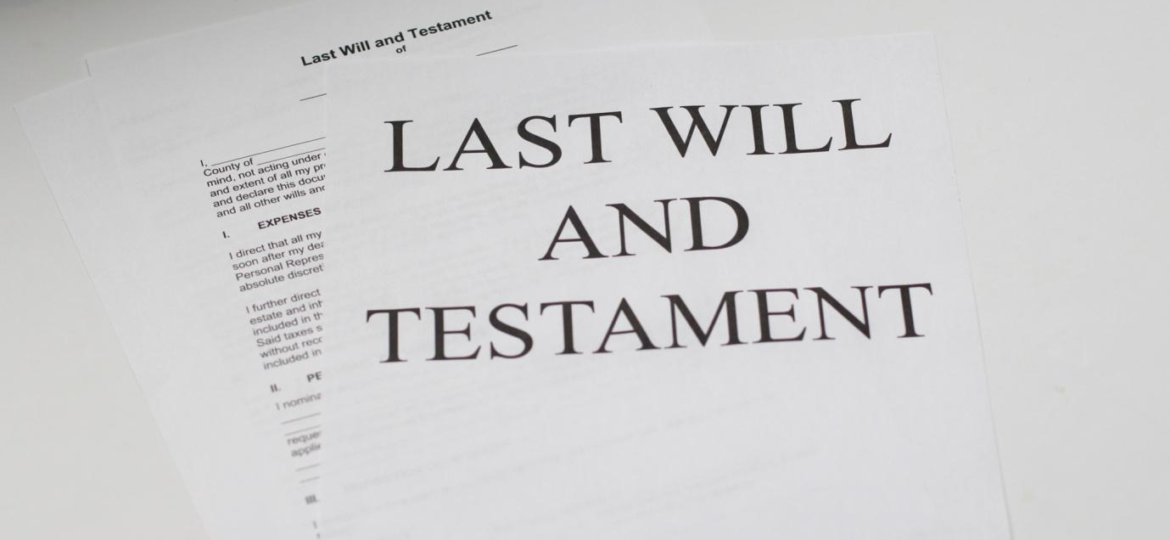
A will is a way to ensure that your assets, property, and other valuable belongings are passed on to the people you want them to pass on to without any problems. However, many people have misconceptions or wrongful information regarding wills that either make their will extremely complicated or invalid after their death.
One of the most popular misconceptions about creating a will is having an oral will. In this article, let’s take a detailed look at what a will is, the necessary steps to make a will valid, and the cons of an oral will.
What is a Will?
A will, also known as a last will and testament, is a legal document that outlines a person’s wishes regarding the distribution of their assets and the management of their affairs after their death. It is a crucial part of estate planning and allows individuals to control the disposition of their property and the care of their dependents.
Key Elements of a Will
The key elements of a will include:
Testator’s Information
The will begins by identifying the person creating the document, known as the testator. It includes the testator’s full legal name, address, and other identifying details.
Appointment of an Executor
The testator designates an executor, also called a personal representative, who is responsible for carrying out the instructions outlined in the will. The executor is responsible for managing the estate, distributing assets, paying debts and taxes, and handling any legal proceedings.
Invalidation of Prior Wills
If the testator has previously created any wills, the current will explicitly state that it revokes and replaces all prior wills and testamentary documents. A will should be updated regularly, especially if the testator has had major life changes, like marriage, childbirth, divorce, etc.
Guardianship of Minor Children
If the testator has minor children, the will can appoint a guardian who will assume responsibility for their care and upbringing if both parents pass away.
Asset Distribution
The core purpose of a will is to specify how the testator’s assets and property should be distributed after their death. This section identifies the beneficiaries, which may include individuals, organizations, or charities. It also details the assets or specific items they are entitled to receive. The will should provide clear instructions to ensure the orderly and fair distribution of the estate.
Residual Clause
A residual clause, also known as a residuary clause or residue clause, addresses the distribution of any remaining assets that are not specifically mentioned in the will. It ensures that any property or assets not explicitly allocated to beneficiaries are accounted for and distributed according to the testator’s wishes.
Contingent Beneficiaries
If a named beneficiary passes away before the testator or is unable to accept the inheritance, the will should include provisions for contingent beneficiaries. These individuals or organizations will inherit the assets if the primary beneficiaries cannot do so.
Special Instructions
The testator may include special instructions in their will, such as specific gifts of personal belongings, charitable donations, or funeral arrangements. These provisions address any unique requests or preferences the testator wants to be fulfilled after their death.
Witnesses and Signatures
For a will to be legally valid, it usually requires witnesses to attest to its authenticity. The number of witnesses and their qualifications may vary depending on local laws. The testator must sign the will, and witnesses should also sign to validate the document.
Date
The will should include the date it was executed to establish its chronological order and ensure the most recent version is recognized.
Oral Wills and their Cons
The validity of an oral will, also called a nuncupative will, varies depending on the country. In general, most legal systems require wills to be in writing to be considered valid. However, some countries recognize oral wills under specific circumstances, typically imposing strict requirements for their validity. It’s important to note that oral wills are generally seen as less reliable and more prone to disputes than written wills.
Here are some major disadvantages of having an oral will:
Limited Acceptance
Oral wills are not widely recognized or accepted in many countries. Most countries and states have specific laws that require wills to be in writing.
Emergency Situations
Oral wills are typically considered valid only in specific circumstances, such as during emergencies when the testator is facing imminent death and does not have access to a written will. For example, some countries may accept an oral will made by a soldier on active duty or by a mariner at sea.
Witnesses and Formalities
Even in countries that recognize oral wills, there are extremely strict requirements to ensure their validity. This may include having witnesses present at the time the oral will is declared, requiring the testator to make the will in the presence of witnesses, and enforcing a time limit within which the oral will must be put into writing.
Limited Scope
Oral wills are typically limited in their scope and validity. They often apply to personal property of low value rather than significant assets or complex estates. Some countries may also impose restrictions on the amount or types of property that can be disposed of through an oral will.
Burden of Proof
Due to the lack of a written document, the burden of proof to establish the validity and contents of an oral will falls on the party asserting its existence. This can lead to legal challenges and disputes, as there may be a lack of concrete evidence to support the testator’s intentions.
Are Oral Wills Legal and Valid in Canada?
In Canada, oral wills are generally not considered valid or enforceable. The legal requirements for a valid will in Canada require that it must be in writing to be recognized. Oral statements or declarations, even if made in the presence of witnesses, are insufficient to create a valid will.
In all provinces and territories of Canada, the formal requirements for a valid will include:
Writing
A will must be in writing, either handwritten or typewritten. Electronic wills may also be valid in certain provinces.
Signature
The will must be signed by the testator at the end of the document. If the testator is unable to sign, they may direct someone else to sign on their behalf in their presence and at their direction.
Witnesses
The will must be witnessed by at least two individuals who are not beneficiaries or spouses of beneficiaries named in the will. The witnesses must be present at the same time as the testator when they sign the will, and they must also sign the document in the presence of the testator.
These formalities ensure the authenticity and validity of the will, provide evidence of the testator’s intentions, and minimize the potential for fraud or disputes.
Creating a Legal and Enforceable Will with the Help of a Lawyer
Creating a will with the assistance of an experienced lawyer is a smart way to ensure your will is completely legal and enforceable. While creating a will without legal assistance is possible, working with a lawyer offers several benefits. These include:
Legal Expertise
Lawyers specializing in estate planning possess extensive knowledge of wills, estates, and the relevant laws and regulations. They can guide you through the process, explain legal concepts, and help you navigate any complexities or unique considerations that may arise.
Clarity and Accuracy
A lawyer will help you express your wishes clearly in your will. They will ask relevant questions, guide you about different scenarios, and help you anticipate potential issues that may arise after your passing. This can help minimize the likelihood of disputes among beneficiaries and ensure that your intentions are accurately reflected.
Updating and Reviewing
Over time, circumstances and priorities may change, requiring updates to your will. A lawyer can assist in reviewing and updating your will as needed, ensuring that it remains current and aligned with your wishes. They can also help you navigate any legal requirements for making changes to an existing will, like revocations, etc.
Estate Administration Support
When the time comes, the executor named in your will may require legal guidance during the administration process. A lawyer can assist the executor in fulfilling their responsibilities, including applying for probate, addressing legal requirements, and navigating any complexities that may arise during estate administration.
Peace of Mind
Working with a lawyer can provide you and your loved ones with peace of mind. Knowing that your will has been professionally prepared, taking into account all relevant legal considerations, can provide confidence that your wishes will be properly carried out and minimize the potential for disputes or challenges.
If you’re planning to create a will, it’s best that you hire a wills and estate lawyer to help you. If you’re in search of a trusted wills and estate lawyer in Canada, Nanda & Associate Lawyers can help you.
We are a trusted law firm in Canada and have a team of experienced wills and estate lawyers ready to help you with creating wills and estate plans. Moreover, we also have personal injury lawyers, family lawyers, real estate lawyers, and business lawyers.
Reach out to us now for further details.
Disclaimer: This article is only intended for educational purposes and shouldn’t be used as a substitute for legal advice.









